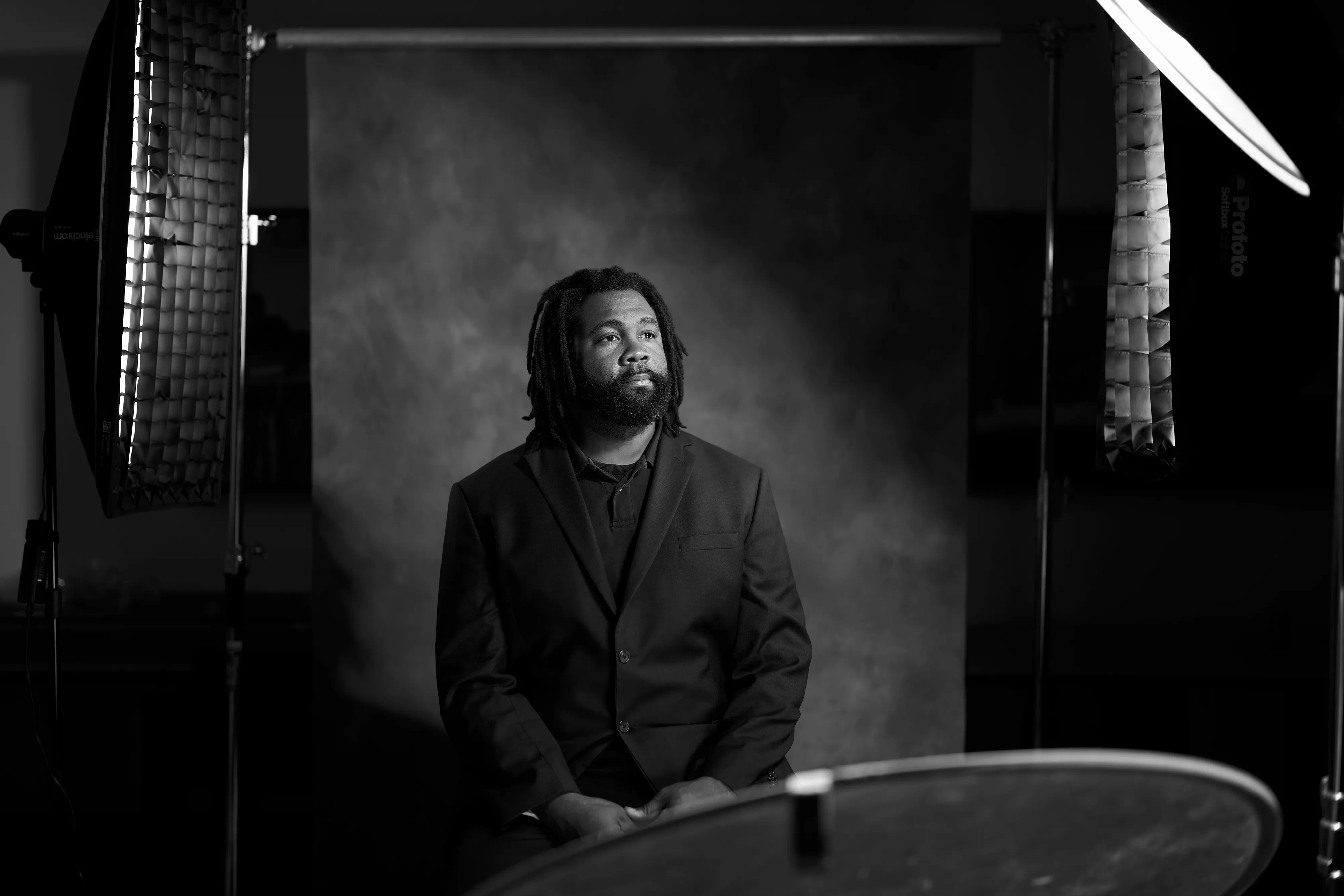In the United States, a Supreme Court decision can have an instant, enormous impact on people across the country. It can shift the foundations of daily life and substantially change the rules of our communities.
Many times, Supreme Court decrees have supported great leaps in social justice: the unconstitutionality of separating children in public schools on the basis of race (Brown v. Board of Education, 1954), the constitutional right to abortion (Roe v. Wade, 1973), marriage equality for LGBTQ+ couples (Obergefell v. Hodges, 2015). Rulings like these have narrowed inequality between people and uplifted underrepresented communities. They have helped spur progress around the world.
But sometimes, the Supreme Court makes an ideological shift backward, and pulls us all deeper into inequality along with it. This felt especially true in 2023, after the Court released a slew of decisions that challenged decades of civil rights advancements. From overruling the constitutional right to abortion one year shy of the 50th anniversary of Roe v. Wade to deciding that race cannot be considered as a factor in college admissions, the Court dismantled several long-established tenets of American society and added barriers in the paths of many people, including women and people of color.
In 2023, several of our grantee partners had front-row seats to history at the Court, as they were involved in cases that went before the justices. Here, these leaders tell us how they pursued their cases, what the outcomes were, and how the Court’s rulings have affected the work they are still doing tirelessly.
Aarti Kohli
Executive Director, Asian Law Caucus
The Asian Law Caucus is the first Asian American legal and civil rights organization in the United States.
 Martin Klimek /Getty Images for Ford Foundation
Martin Klimek /Getty Images for Ford FoundationFighting for affirmative action
Even as the U.S. has become more multicultural and multiracial, the country’s educational systems have only become more racially segregated and unequal. Last summer, the Supreme Court’s majority ignored our long history and present reality of systemically denying people of color, particularly Black Americans, equal access to education.
Without race-conscious admissions and race-conscious policies, racial segregation will rise, disproportionately harming Black, Indigenous, Latine, Pacific Islander, Native Hawaiian, and Southeast Asian communities. Entire generations of talented students of color will be denied opportunities to grow, learn, and thrive.
With the other Asian American Advancing Justice affiliates, the Asian Law Caucus filed two amicus briefs in SFFA v. Harvard that detailed how Asian American and Pacific Islander (AAPI) communities benefit from and support affirmative action and how eliminating race as a factor in college and university admissions programs would harm students of color.
Leading up to the decision, we also developed resources for other Asian American organizations across the country. We organized spokesperson trainings and helped groups find accurate, trustworthy legal analyses. A few weeks after the decision, the Asian Americans Advancing Justice affiliation organized a webinar, “Racial Solidarity and the Future of Educational Equity after SFFA,” which 85 organizations joined. It was a powerful and sobering moment as we all shared our resolve to keep fighting for educational equity and amplifying the voices of directly impacted students, families, and teachers.
Rebuking community divisions
In the early 1990s, renowned scholar Mari Matsuda gave a seminal speech at ALC called “We Will Not Be Used.” Those same prejudices and agendas Mari warned us about 30+ years ago are still active today. Eliminating race-conscious admissions at universities like Harvard and The University of North Carolina gives credence to the model minority myth, under the false premise that Asian Americans are harmed by race-conscious admissions, are not subject to racial injustice, and that all AAPI communities’ experiences are the same. Some political activists, after losing multiple cases challenging affirmative action using white plaintiffs, have explicitly sought out Asian Americans to carry out their thinly veiled agenda.
The same forces behind cases to dismantle race-conscious policies are also blocking our voting rights, enacting anti-immigrant land laws reminiscent of the 1920s, and stripping communities of color of the funding we need to pull through crises and care for our families. It’s part of an old playbook to divide communities of color in order to distract us from coming together to fight for the solutions we really need. But our communities see this for what it is.
Communities in alignment
The broad Asian and Pacific Islander community is the fastest-growing racial group in the U.S., but Asian Americans are often seen as perpetual foreigners. The resurgence of anti-immigrant laws, bans on ethnic studies, and political rhetoric scapegoating immigrants continues to impact Asian and Pacific Islander communities. As our population grows, we can expect more attacks on our civil rights and economic security.
But these challenges and setbacks are also galvanizing. They are showing people that power comes from working across communities of color, not fighting over crumbs. This moment demands what we have always done in struggles for racial justice: come together across races and with unwavering love for our common humanity.
Andy Marra
Executive Director, The Transgender Legal Defense and Education Fund
The Transgender Legal Defense and Education Fund works to end discrimination and achieve equality for transgender people, particularly those in vulnerable communities.
In 2024, the Transgender Legal Defense and Education Fund will merge with the National Center for Trans Equality to become Advocates for Trans Equality (A4TE). Marra will serve as A4TE’s chief executive officer.
 Janine Namgung
Janine NamgungProtecting transgender people
Recent anti-trans legislation has banned transgender people’s access to best-practice medical care, limited kids’ ability to do things like play sports with their friends, and more. All of them send the message to our young people that they are neither welcome nor safe to be themselves. Between 303 Creative LLC v. Elenis, which ruled in favor of a wedding website designer who refused to service same-sex couples, and the Court’s affirmative action decision, the Court took sobering steps away from civil rights and equity.
The Transgender Legal Defense and Education Fund (TLDEF) co-authored a friend-of-the-court brief in 303 Creative with four other national organizations. It urged the Supreme Court to affirm long standing precedent that preserves equal access to the commercial marketplace for all and warned that granting the unprecedented “free speech exemption” would lead to more discrimination.
Leveling the playing field
For more than 50 years, it has been a core American principle that any business that serves some must serve anyone without discrimination. The Supreme Court decided to ignore this crucial norm in a case carefully designed to create a new license to discriminate. Do not be fooled; this case was about far more than wedding websites for LGBTQ+ couples. This is the canary in the coal mine for those of us who are being targeted by hundreds of anti-trans bills this year and for other marginalized communities, too. These are efforts to chip away at our rights, little by little.
No one’s civil rights should depend on the state or zip code they live in. We need to level the playing field for everyone and guarantee that LGBTQ+ people have the same federal anti-discrimination protections that other Americans have.
A long-term lens
Progress may look different at this moment, but we are making gains. In Lange v. Houston County, a 2022 decision by a Georgia federal district court, TLDEF secured the first court ruling of its kind in the South that found employers cannot exclude or deny coverage for transgender health care from its employee health insurance plan.
The current legal and political moment requires all advocates to keep one eye on the present and the other on the future. We know that transformational change is a long-term endeavor, and we are invested in building the infrastructure to shift deeply held, longstanding narratives. We are continuing to tell the stories of trans people because those who know us love us, and we are building power that will go beyond Supreme Court terms and election cycles.
Some days, it’s almost too much to take, but I remain hopeful and determined. While the attacks are deeply personal, and the landscape is grim in various areas of the country, we are not an easy target. TLDEF is partnering with local, state, and national groups to keep bills from passing into law. We take on the toughest cases in the most challenging places, and we are winning in the courts and in the court of public opinion. That is why the attacks are becoming so ferocious—but luckily, we are fiercer, and we won’t stop fighting.
Evan Milligan
Former Executive Director, Alabama Forward
Alabama Forward is a civic engagement network that convenes nonpartisan organizations to work toward civic progress.
 Simon Luethi for Ford Foundation
Simon Luethi for Ford FoundationChallenging voter suppression
In Allen v. Milligan, the Supreme Court upheld a ruling that struck down Alabama’s redistricted 2021 congressional map, which diluted the voting power of Black Alabamians and violated the Voting Rights Act. Each of the Milligan plaintiffs were either Alabama Forward staff members or representatives of our network’s member groups.
In 2021, we paired with Alabama Values and the Alabama Election Protection Network to host a series of redistricting trainings for members of Alabama’s civic engagement community. We also co-managed biweekly virtual meetings and other actions that helped people understand the relationships between the Selma to Montgomery March, the 1965 Voting Rights Act, and the Shelby v. Holder decision that later gutted voter protections.
My co-plaintiffs and I challenged government officials who have used old “state’s rights” rhetoric to defend voter suppression today. We prevailed because the majority of the federal judges who heard our case were willing to recognize that the weight of federal law is on our side.
Reflective representation
This win was a reality check for our Black communities here in Alabama. So often, we allow ourselves to become convinced that we are small and can’t cultivate hope. It is very difficult to build social movements on a foundation of internalized oppression and inferiority.
Also, in our current political climate, the most extreme and uncompromising voices seem to capture the most attention. Near-erasure of federal oversight of campaign financing, redistricting, and voting systems has greatly contributed to this reality. State legislatures have been free to build majority white political districts that can only be won by white candidates. We need political representation that reflects the diversity of our communities. Only equitably drawn political districts can do this.
Winning our case reminds us to consider ourselves worthy of any opportunity or leadership office that we are willing to work hard enough to secure. Our case involved collaboration across so many lines of difference that are used to scatter and shatter our coalitions. Hopefully, others are inspired to go even bigger.
The road ahead
There is an urgent need to build our local- and state-based voting rights movement infrastructures. At the federal level, we must pass laws that cement the rights of all U.S. citizens of voting age to vote and have that vote counted. Our state legislatures, assemblies, and constitutions need their own versions of these same provisions. Securing these changes will require the constant efforts of local coalitions working creatively, independently, and democratically, modeling the very change we want to see.
Sarah Kastelic
Executive Director, The National Indian Child Welfare Association
The National Indian Child Welfare Association works to eliminate child abuse and neglect by strengthening families, tribes, and the laws that protect them.
 Tom McKenzie /Getty Images for Ford Foundation
Tom McKenzie /Getty Images for Ford FoundationHolding firm for Native rights
Haaland v. Brackeen challenged the constitutionality of the Indian Child Welfare Act (ICWA), which was passed to address generations of harm to Native children caused by assimilationist policies. When it was passed in the late 1970s, research found that 25-35% of all Native children were being separated from their parents, extended families, and communities. Eighty-five percent of these children were placed outside of their families and communities, even when fit and willing relatives were available.
We are one of four national Native-led organizations that established the Protect ICWA Campaign alongside our partners at the National Congress of American Indians, the Native American Rights Fund, and the Association on American Indian Affairs. In preparing to defend the ICWA, we focused on how it is widely considered best practice by child welfare experts and is the gold standard in child welfare policy. Research shows that when kids are connected to their families, identity, and culture, it leads to positive outcomes, and ICWA ensures that Native kids can maintain those connections.
The June 15th Supreme Court decision to uphold ICWA brought overwhelming joy and relief. It represented a huge win for Native children, Native families, and the future of Native peoples.
A tenuous situation
Intentional policies and efforts to keep Native families together are a necessary response to generations of removal and separation. Taking children from their communities is a key ingredient in the recipe for colonization that happens all over the world: Colonizers take the land, control the natural resources, usurp Indigenous forms of governance, delegitimize Indigenous values and worldviews, and then finally take the children.
The challenges to ICWA are rooted in challenges to tribal sovereignty. ICWA maintains that American Indian and Alaska Native Tribal Nations are sovereign nations with an inherent right to self-government and the right to provide for their citizens’ social and economic safety and cultural needs, a truth affirmed by the Supreme Court for over 200 years. Opponents in Haaland v. Brackeen attempted to undermine decades of our defense of Native children, tribal sovereignty, and the future of Tribal Nations by dismantling established tribal rights.
Keeping families intact
Today, Native children continue to be removed from their homes at nearly 1.5 times the rate of white children and often aren’t placed with relatives or other Native families, even when these placements are available. As we continue to support tribal children and families, we need to strengthen ICWA implementation and compliance. As powerful as ICWA is, its provisions are not equally and consistently followed.
The robust coalition of partners and allies that joined the Protect ICWA Campaign gives me hope. One resounding sign of this support is the 21 amicus briefs that were filed in support of ICWA. It will take this kind of power to make the changes needed to strengthen how ICWA is implemented today.
Sirine Shebaya
Executive Director, National Immigration Project
The National Immigration Project is an organization of attorneys and advocates that works to end injustice in the criminal and immigration systems.
 Simon Luethi for Ford Foundation
Simon Luethi for Ford FoundationEquitable immigration
United States v. Texas challenged the Department of Homeland Security’s newly issued immigration enforcement priorities. The National Immigration Project filed an amicus brief on behalf of 48 community, immigrant, and civil rights groups, law school clinics, legal service providers, and labor unions. We wanted to make sure that community voices were heard in a process that can be arcane and inaccessible to the people who need it most.
Texas and Louisiana claimed they were being harmed by the increasing number of immigrants in their states. We argued that that claim was motivated by discrimination against immigrants. Both states had publicly touted their population growth, making it clear that leaders saw population growth as a boon, not an injury. This meant that their objections to having more immigrants were based purely on discrimination based on national origin, ethnicity, and race.
At the National Immigration Project, one of our key priorities is to support work happening at the state and local level, creating deep regional connections. We use litigation, advocacy, narrative strategy, training, and technical assistance to support and resource the immigration movement. We believe this approach helps us win more victories by connecting advocates to each other, amplifying wins and making them more replicable, and defending against the worst policies in a way that builds for the future.
Changing the narrative
A confluence of factors has led us to this moment: more hostile courts, the erosion of voting rights, and a lopsided electoral process. There’s been a normalization of things that just a few years ago would have seemed extreme, such as attacks on asylum-seekers or attacks on DACA recipients, with insufficient resources to counter and tell a different story
One thing we need to understand is that the fight for hearts and minds is a long-term fight. We need to be thinking about how we change the narrative, build a base, and strengthen immigration rights infrastructures to create real change. At the national level, we need to move away from criminalizing narratives and stop being so hesitant to speak positively about the border and immigration. When we leave that space open, it gets claimed by xenophobic narratives.
One emerging issue that we have begun to work on is climate migration. Over the next few decades, climate change is expected to create higher levels of migration than the world has ever seen. The lack of a legal framework for climate migrants to seek protection in the U.S. is already presenting issues for people arriving at our border.
Another area of work involves ensuring that people who do have access to legal pathways can access them. We prioritize educating people about new policies that may provide relief, including labor-based deferred action, different forms of prosecutorial discretion, and more traditional pathways like Temporary Protected Status. We are also currently housing a new project focused on enabling children who are eligible for Special Immigrant Juvenile Status but are stuck waiting thanks to bureaucratic hurdles.
Applauding progress
The fight for immigration rights is also a fight for racial justice, environmental justice, criminal justice, and more. I think it is so important to acknowledge all our victories—even those that may fall short of what we want. Every day that new attorneys, advocates, organizers, and directly impacted people join our movement, we make progress. Every time a family that was separated is reunified, or a detention center is shut down, or a new protective policy passes, that’s progress we have made together toward our shared goals.
